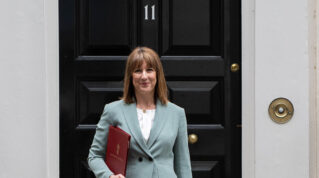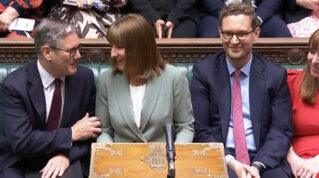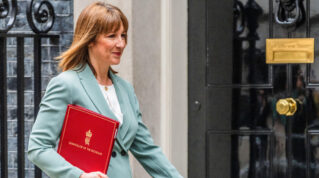Large academy trusts have racked up multi-million-pound surpluses during the pandemic, as savings from school closures and extra DfE cash boosted reserves.
Schools Week analysis of trust accounts highlights significant Covid windfalls, despite schools’ extra costs and widespread calls for more funding.
One trust boosted its reserves by £9 million, while another moved from a deficit to a £6 million surplus.
The findings challenge the narrative that Covid pressures have squeezed budgets across the sector.
It is also likely to strengthen ministers’ belief that schools can afford to use reserves to meet new Covid costs.
Accounts reveal Covid silver lining
Covid has heaped pressures on schools, but the first tranche of trust annual accounts for 2020-21 reveal financial silver linings.
Outwood Grange Academy Trust’s operating surplus rose from £5.5 million in 2020 to £9.8 million last year, accounts show.
The 38-school trust boosted its overall reserves from £22.8 million to £31.9 million.
The trust, known for its expert financial management, was one of several highlighting “operational savings” during lockdown.
An OGAT spokesperson said it plans to reinvest £4 million in revenue projects “focused on helping students catch up”. It also has a “very significant” capital programme to address a “legacy of under-investment” in schools before they joined the trust.
The spokesperson added: “In combination, these plans aim to invest available reserves for the benefit of students and only retain the recommended reserve level as a contingency.”
The trust’s excess of income over expenditure actually shot up from £8.3 million in 2020 to £21.5 million last year – a rise of 160 per cent.
But accounts state this was driven “primarily” by three new schools joining.
Reserves boosted by ‘well-managed budgeting’
Meanwhile United Learning’s accounts highlighted reserves from restricted and unrestricted general funds, which cover most day-to-day spending, of £31.8 million. They had stood at £17 million a year earlier.
The trust, the country’s largest, with 75 schools, said this was down to government Covid support alongside “clear and well-managed budgeting and financial controls”.
It received £6.7 million Covid funding, including the catch-up premium, testing and furlough grants.
The trust spent £1.7 million of reserves on Chromebooks during the year, and has earmarked £2.9 million for catch-up this year.
Nearly £5 million from operating surpluses is also for capital projects.
Stephen Morales, chief executive of the Institute of School Business Leadership, said trusts should be “held to account for the reserves they’ve got”. But he said surpluses are “not universal”, and many standalone trusts’ finances are “precarious”.
“Sensible contingency pots make sense, and you might have growth or infrastructure ambitions,” he added. “But I’m an advocate for funding today meeting needs of children today.”
Warning over judging size of reserves
Leora Cruddas, chief executive of the Confederation of School Trusts, said the reasons behind rises in reserves are “complex”, citing, for example, that building projects planned from reserves could have been delayed.
“I would be very cautious about concluding that trusts hold too much in reserves,” she added.
Plymouth CAST plans to spend £2.5 million of its reserves on building work. Its accounts say Covid helped it make savings on teaching supply costs and “general consumable purchases”, boosting its revenue surplus by £1.3 million.
The 35-school trust carried over £5.2 million in revenue funds into this financial year, up from £2.8 million a year previously.
But Laura Fox, chief finance officer at Plymouth CAST, said the year also saw “substantial investment” in IT.
Accounts say the trust is “anticipating a more challenging financial year” in 2021-22, with schools fully open and cover needed for staff who are ill or isolating.
Delta Academies Trust’s accounts did not offer commentary on Covid’s overall impact, but it saw its reserves rise from £12.4 million in 2020 to £14.1 million in 2021.
Lettings income and other trading income fell amid lockdowns, but it received £2 million in extra Covid funding to cover exceptional costs.
Accounts also state pupil numbers have risen at several academies, “which have helped to secure the financial sustainability of the trust”.
Meanwhile the Kemnal Academies Trust’s reserves increased from £9.5 million to £12.4 million. It said “usable reserves”, excluding ring-fenced cash, rose £2.9 million.
But it stated that only the “majority” of the £2 million it incurred in extra Covid costs were compensated by government grants.
Astrea Academy Trust even replaced a £0.9 million operating deficit in 2020 with a £6.4 million surplus in 2021. Reserves also rose, but the trust’s financial overview did not spell out Covid’s net impact.
Using reserves for Covid pressures ‘unreasonable’
The figures come amid increased scrutiny of growing reserves. Pressed by Labour to fund more air purifiers this week, schools minister Robin Walker noted most schools are “operating with a cumulative surplus”.
But Julia Harnden, funding specialist at school leaders’ union ASCL, warned that expecting schools to use reserves for unbudgeted Covid pressures is “neither realistic nor reasonable”.
















Your thoughts